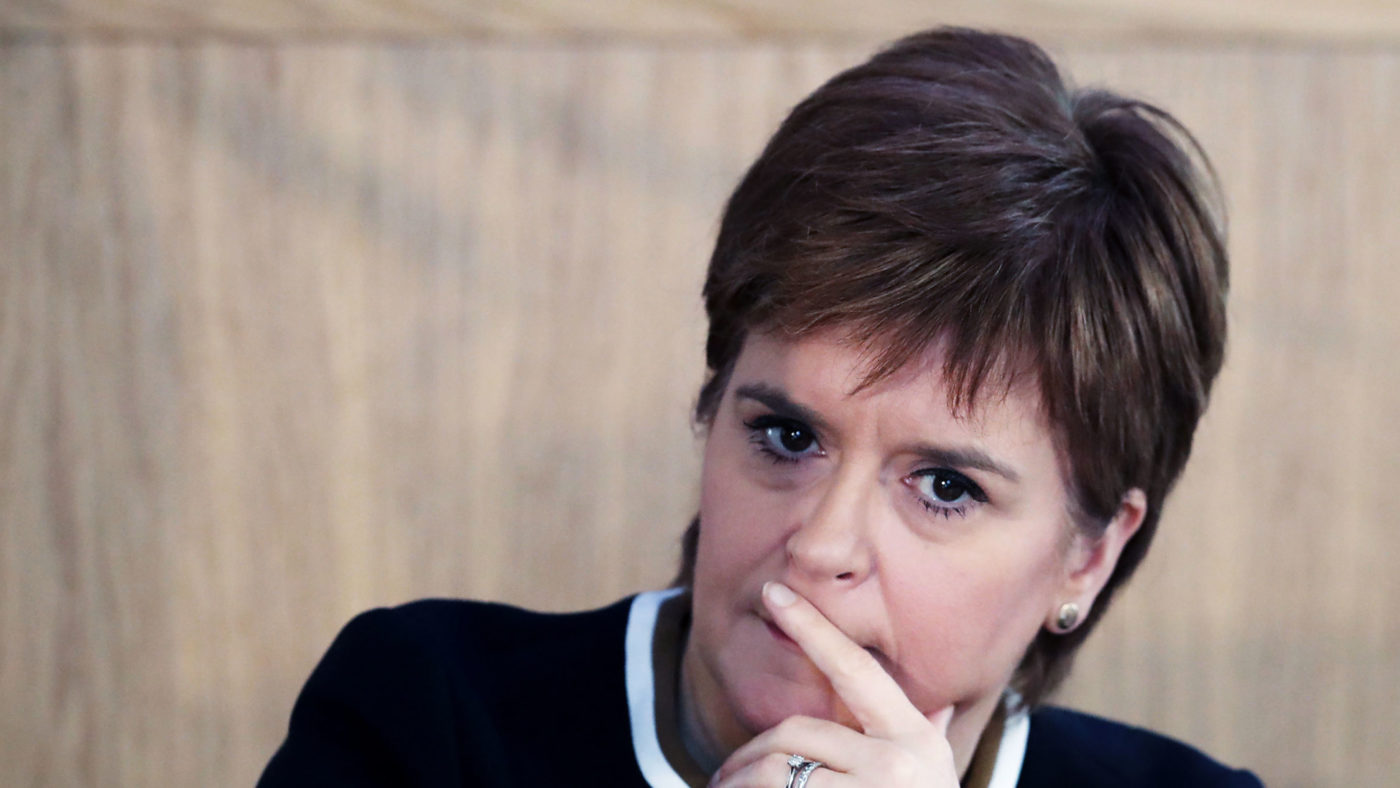Nicola Sturgeon has unveiled plans to force people living in Scotland to pay more tax. Under her proposals, even those earning as little as £24,000 would face an increase. Those earning between £24,001 and £43,000 would pay one per cent more than they do now. Those earning more than £150,000 would see their income tax rate rise from 45 per cent to between 46 per cent and 50 per cent.
Sturgeon has said that “the time is right” due to cuts by the UK government, arguing that the tax hike is necessary in order to protect public spending. Here’s why the First Minister is wrong.
First, increasing income tax increases the likelihood of people already living in Scotland, and especially the very wealthy, to leave. There have been numerous academic studies examining how an increase in the top rate of tax impacts the residence choices of the super rich. The evidence strongly suggests that increasing the top rate of tax significantly increases the likelihood of the very wealthiest leaving. For example, research conducted by Esteller, Piolatto & Rablen found that a one per cent increase in the top marginal income tax rate increases out-migrations by up to three per cent. Moreover, Alm & Wallace found that the richest people in the country are more responsive to tax changes than average people. Another really interesting paper by Kleven, Landais & Saez looked at the impact of taxation on the migration of elite footballers in Europe. They found that tax was a significant factor in determining where footballers moved to. There are, of course, very few world class footballers in Scotland. However, it does again demonstrate that the level of taxation does impact where the very wealthy decide to live.
This brings us to the second reason why Nicola Sturgeon is wrong. As business leaders have rightly pointed out, increases to income tax will hamper their attempts to attract the best talent to Scotland. It will be incredibly difficult to persuade people to move north of the border if that would mean that they would have to pay more income tax. This effect has not just been recognised in business and football, but also for science and baseball. If the SNP follows through on its plans to increase income tax, then Scotland will find it increasingly difficult to attract the people it needs to help its economy and society thrive.
If the SNP increases income tax then the very richest people in the country will, in many ways, be OK. They will have the resources to simply move to a country where the level of taxation is less oppressive. It is those on modest incomes who will be the most adversely affected. The cost of living is already very high in the UK, and many households on low incomes are struggling to make ends meet. Taxation already places a heavy burden on people on low and middle incomes, increasing income tax will place even more pressure on them and exacerbate the cost of living crisis.
Increasing income tax will also be bad news for Scotland’s economic growth. There has been a great deal of research looking at the impact of tax cuts and tax increases on economic growth. The evidence is clear: tax cuts stimulate economic growth and tax increases stifle it. For example, research conducted by Johansson et al looking at the impact of various taxes on the economic growth in OECD countries concluded that high levels of income tax have a very negative impact on economic growth. Moreover, research conducted by Gale & Samwick demonstrated that cuts to income tax can boost economic growth by incentivising people to work more, save more, and invest more.
Nicola Sturgeon is also wrong to suggest that increasing income tax is necessary to protect public spending. In reality, the Scottish government already spends far too much of taxpayers’ money. It has overspent on a number of projects such as £76 million on the CAP IT system, £49 million on a 24 hour NHS helpline, and £18 million on funding for Prestwick Airport. Furthermore, it has spent £75 million on a climate challenge fund and lost its £35 million investment in Pelamis and Aquamarine renewable energy companies. It has also racked up hundreds of thousands of pounds in legal fees in futile attempts to defend its unpopular policies.
Public spending can have a very negative impact on economic growth as it crowds out private investment. For example, research conducted by Fournier & Johansson found that high public spending is associated with low economic growth. This is also supported by a plethora of economic research such as that conducted by Slemrod and Myles. In fact, the Rahn Curve demonstrates that the optimal level of public spending is between 15 and 25 per cent of GDP.
The SNP’s profligacy has resulted in Scotland having a deficit of £13.3 billion which is more than three times higher than the UK’s and is 8.3 per cent of GDP – higher than Greece’s. Increased taxation and public spending will only make things worse.
Nicola Sturgeon and her party claim to care about helping people who are struggling with the cost of living by improving the Scottish economy. But the last thing the Scottish economy needs is Surgeon’s tax rises.


